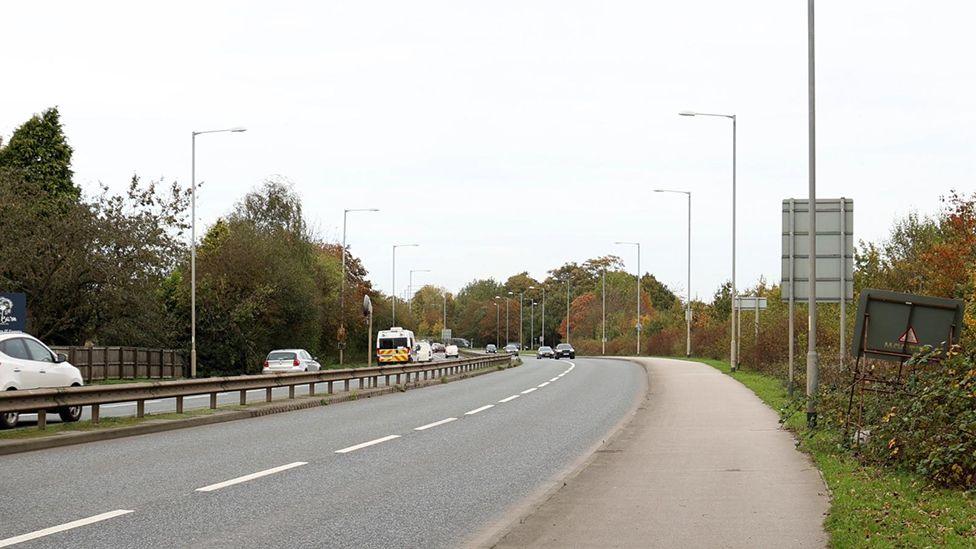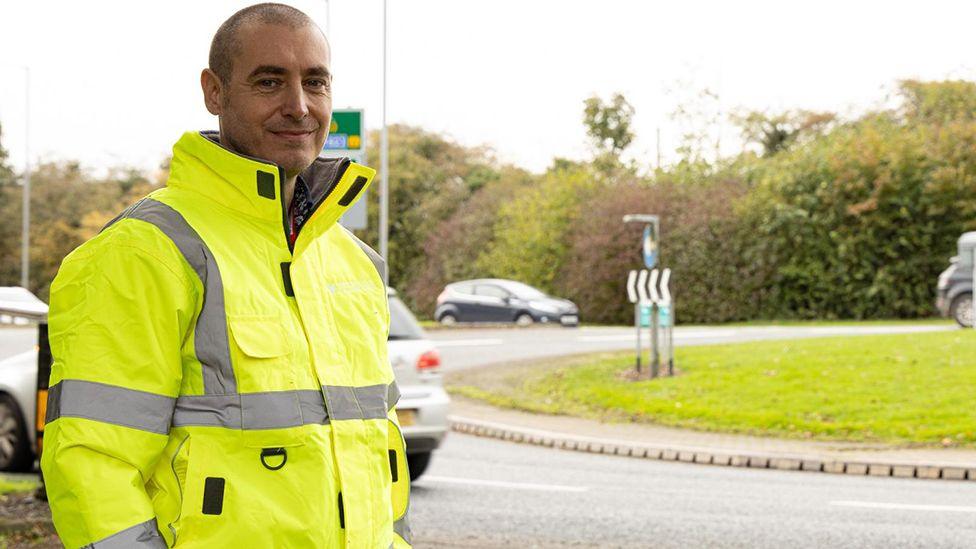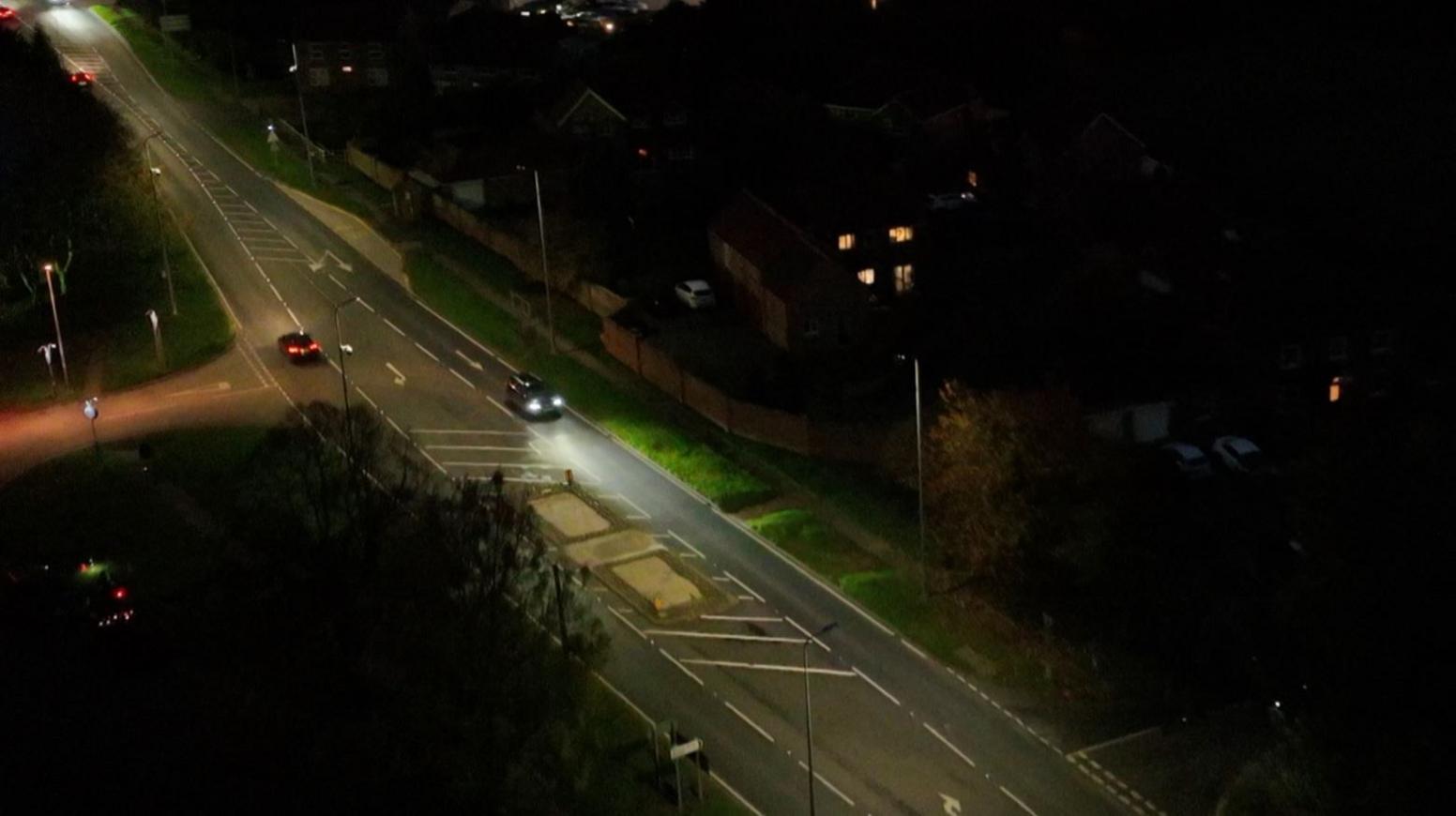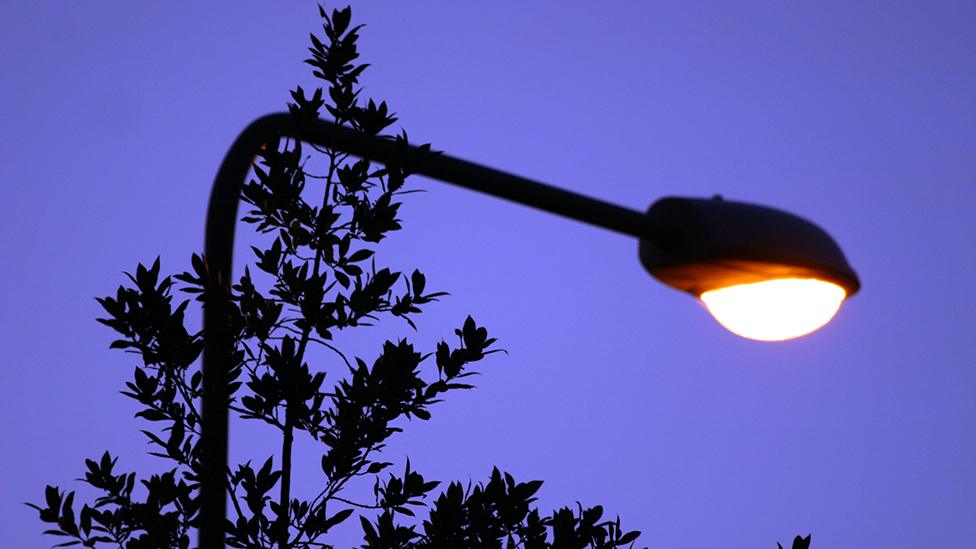Street lights switched off for energy saving trial

A stretch of the A164 from Willerby to the Humber Bridge will be included in the trial
- Published
Street lights on two main roads in East Yorkshire are to be switched off at night as part of an energy saving trial.
Lamp-posts along the A164 from the Humber Bridge to Willerby and from Cottingham to Skidby, and on the A1079 from Dunswell Roundabout to Ennerdale Bridge will not operate from 4 April.
East Riding of Yorkshire Council was awarded £3.3m to study more environmentally friendly ways of lighting main roads in the future.
The project will run for 12 months and "the behaviour of drivers, cyclists and pedestrians will be closely monitored", the council said.
The authority said it had installed more than 50 miles (80km) of new highly reflective white lines and more than 5,000 solar powered illuminated road studs along the two roads over the last year.
"All are designed to give drivers all the visual indications they need to navigate the road without the need for traditional overhead lighting," the council added.
Karl Rourke, the council's service manager for street lighting, said the trial would use thermal imaging cameras to monitor drivers' behaviour.
"The East Riding is at the forefront of this innovative project which could lead to a massive reduction in carbon and energy on UK roads," he said.
"We are now at a stage where we can turn off the now not-needed street lights along two routes, knowing that we can do it safely.
"To make sure the move is being done as safely as possible, we have created and tested a world-first artificial intelligence system that monitors driver behaviour and safety at key points."

Karl Rourke said the project could lead to a "massive reduction in carbon and energy"
There are about 600 street lights in the two areas and each light uses 100 tonnes of CO2 during its lifetime, the council said.
Street lights in residential areas are not included in the scheme and will not be affected.
Listen to highlights from Hull and East Yorkshire on BBC Sounds, watch the latest episode of Look North or tell us about a story you think we should be covering here, external.
More related stories
- Published31 October 2024

- Published25 January 2023
